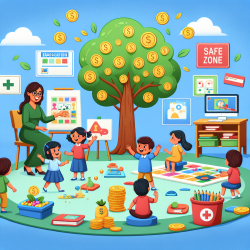Understanding the Power of Self-as-Context in Therapy
As practitioners in the field of speech-language pathology, it's essential to stay informed about the latest research that can enhance our therapeutic approaches. A recent study, "Measuring self-as-context in Chinese college students: Validity and reliability of the Chinese version of self-as-context scale (C-SACS)," offers valuable insights into the concept of self-as-context, a critical component of Acceptance and Commitment Therapy (ACT).
What is Self-as-Context?
Self-as-context refers to the ability to observe one's thoughts and feelings from a detached perspective, enabling individuals to manage negative thoughts with calmness and flexibility. This concept is crucial in ACT, which aims to improve psychological flexibility and promote a meaningful life. The study highlights the importance of self-as-context in enhancing mental health and well-being among Chinese college students.
Key Findings from the Study
- The C-SACS demonstrated good reliability and validity in assessing self-as-context among Chinese college students.
- The scale consists of two factors: Centering and Transcending, which reflect the ability to manage unwanted thoughts and maintain an objective perspective, respectively.
- Higher self-as-context levels were positively correlated with life satisfaction and negatively correlated with depression, anxiety, and stress.
Implications for Practitioners
The findings from this study underscore the significance of incorporating self-as-context into therapeutic practices. By fostering this skill in children, practitioners can help them develop resilience against negative emotions and enhance their overall well-being. Here are some practical steps practitioners can take:
- Integrate mindfulness exercises that encourage observing thoughts without judgment.
- Use role-playing activities to help children practice perspective-taking.
- Incorporate discussions about self-awareness and emotional regulation into therapy sessions.
Encouraging Further Research
While the study provides valuable insights, it also highlights the need for further research to explore the applicability of self-as-context across different populations. Practitioners are encouraged to contribute to this growing body of research by examining the role of self-as-context in various therapeutic settings.
To read the original research paper, please follow this link: Measuring self-as-context in Chinese college students: Validity and reliability of the Chinese version of self-as-context scale (C-SACS).










